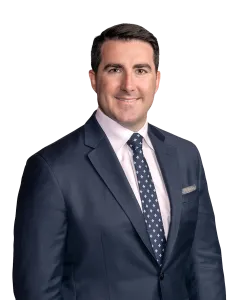Walgreens to Pay $300 Million to Settle DOJ Claims Over Invalid Opioid Prescriptions
Headlines that Matter for Companies and Executives in Regulated Industries
Walgreens to Pay $300 Million to Settle DOJ Claims Over Invalid Opioid Prescriptions
Walgreens Boots Alliance has agreed to pay more than $300 million to resolve allegations brought by the US Department of Justice (DOJ) that it knowingly filled millions of invalid prescriptions, including opioids and other controlled substances, without legitimate medical purposes.
The DOJ’s claims stem from lawsuits initiated by four whistleblowers under the False Claims Act (FCA), which allows private parties to sue on behalf of the US government and share in any recovery. The government alleged that Walgreens filled millions of prescriptions that were not valid or lacked a legitimate medical purpose, including excessive quantities and early refills of opioids, dispensed a combination of drugs known as the “trinity” (an opioid, a benzodiazepine, and a muscle relaxant), which is commonly abused, pressured pharmacists to fill prescriptions quickly, discouraging them from verifying the legitimacy of controlled-substance prescriptions, ailed to implement systems to block prescriptions from practitioners known to write illegal opioid prescriptions, even as pharmacists requested such measures and competitors adopted similar safeguards, and prevented pharmacists from warning each other about problematic prescribers.
The settlement, which is available here, resolves all federal, state, and local opioid-related litigation against Walgreens. The DOJ reiterated its commitment to holding entities accountable for actions contributing to the opioid crisis.
Illinois District Court Narrows FCA Kickback Claims Against Allergan, Adopts But-For Causation Standard
On April 23, the US District Court for the Northern District of Illinois issued a significant opinion in an FCA case against Allergan Limited and Allergan PLC. In a mixed opinion, the court allowed some of the relators claims to proceed but dismissed the bulk of the claims and adopted a stringent, “but-for” causation standard for FCA kickback claims.
The court found that the relators, who were former sales representatives, sufficiently alleged that Allergan’s Speaker Bureau program provided illegal remuneration to physicians in the form of speaker fees, meals, travel, and other benefits, in violation of the Anti-Kickback Statute (AKS). The allegations relate to prescriptions of Allergen’s drugs Linzess and Viberzi and highlight the ongoing scrutiny of speaker programs and similar physician engagement strategies.
On the other hand, the court required the relators to show that claims submitted to the government were the direct result of the alleged kickbacks, joining the First, Sixth, and Eighth Circuits in applying a but-for causation standard to the FCA counts brought by the relators. The court held that, except for two physicians (Dr. Paul Bierman and Dr. Daniel Kayal), the relators failed to allege sufficient facts to show that prescriptions and resulting claims were caused by the kickbacks, noting that mere temporal association between payments and claims is insufficient for FCA liability.
Furthermore, the court clarified that false certification claims (where a party falsely certifies compliance with the AKS) do not require but-for causation. Nonetheless, the court held that the relators’ allegations were too vague regarding the details of certifications and their connection to government payment, underscoring the need for detailed facts connecting alleged misconduct to specific claims for payment.
The court also dismissed a variety of other claims, including a broad FCA conspiracy claim, except as to Dr. Bierman, where a specific agreement was alleged; claims based on falsified Speaker Bureau attendance records were dismissed as the relators did not allege these records were used to obtain government payment, a reverse FCA claim (alleging improper avoidance of repayment obligations) as duplicative of the main FCA claims, and most of the state law claims (for the same reasons as the federal claims), with the exception of the Tennessee Medicaid FCA claim, which was allowed to proceed for Dr. Bierman and Dr. Kayal. The court did allow a retaliation claim by one of the relators to proceed, who claimed he was terminated for refusing to participate in off-label marketing and for reporting potential FCA violations internally.
The case, United States v. Allergan Ltd., No. 22 CV 3013 (ND Ill.), will proceed on a limited basis, focusing on the claims related to the two specific physicians and the retaliation claim. The court’s opinion is available here.
Genetic Testing Company and Marketer Settle FCA Allegations for $6 Million
Genexe LLC, a genetic testing company, and its parent marketing firm, Immerge Inc., along with their top executives, have agreed to pay $6 million to resolve allegations brought by the US Attorney’s Office for the Eastern District of Pennsylvania. The government alleged that the companies violated the FCA by billing Medicare for medically unnecessary genetic tests. The settlement also resolves two whistleblower lawsuits filed in the US District Court for the Eastern District of Pennsylvania.
The government’s claims centered on a purported kickback scheme involving Genexe, Immerge, several medical laboratories, and telemedicine healthcare providers. According to the government, the scheme resulted in laboratories billing Medicare for genetic tests — costing more than $6,000 per test — that were not medically necessary. Under Medicare Part B, genetic tests must be approved by a physician and deemed medically necessary, meaning they must be related to a patient’s illness or condition.
The US Attorney’s Office emphasized that genetic testing fraud not only exploits patient fears but also wastes taxpayer dollars by diverting funds to unnecessary or nonexistent tests. The DOJ’s press release is available here.
DOJ Files Complaint Against Uniform Supplier for Allegedly Dodging Customs Duties
The DOJ has filed a lawsuit against Barco Uniforms Inc. and its Chinese-based manufacturers, alleging that they conspired to underpay customs duties on imported uniforms through a double-invoicing scheme in violation of the FCA.
According to the DOJ’s complaint, Barco Uniforms is a supplier of uniforms to large chain restaurants and retailers, such as fast-food companies. Since at least 2004, Barco Uniforms has purchased uniforms from Chinese-based manufacturers owned by Kenny and David Chan, who formerly operated a factory in California. The DOJ alleges that, starting in 2011, Barco Uniforms and the Chan companies devised a scheme to reduce the duties paid on the uniforms by submitting false entry summaries to the US Customs and Border Protection CBP that undervalued the imported goods. The DOJ claims that the defendants used two sets of invoices; one that reflected the actual prices of the uniforms, and another that contained artificially low prices that were used to calculate the duties. The DOJ estimates that the defendants underpaid millions of dollars in duties over the years, gaining an unfair advantage over their competitors and depriving the US government of revenue.
The DOJ’s lawsuit was initiated by a whistleblower, Barco Uniforms’ former director of product commercialization, who filed a complaint under the FCA in 2016. The DOJ decided to intervene in the whistleblower’s case and filed its own complaint, available here, on April 11, 2021, in United States v. Barco Uniforms, Inc., No. 2:16-cv-1805 (ED Cal.). In its recently filed complaint, the DOJ is seeking treble damages, civil penalties, and injunctive relief against the defendants.
Insurance Executive Pleads Guilty in $134 Million ACA Fraud Scheme
On April 18, Dafud Iza, a Florida-based insurance executive and director of operations at Compass Health Insurance, pled guilty in the US District Court for the Southern District of Florida to one count of major fraud. The plea stems from his involvement in a large-scale scheme to fraudulently enroll individuals in fully subsidized health insurance plans under the Affordable Care Act (ACA), resulting in at least $134 million in improper government subsidies.
Prosecutors allege that Iza and his accomplices targeted vulnerable populations, including individuals who were homeless, unemployed, or suffering from substance abuse or mental health issues. These individuals allegedly were enticed with cash, gift cards, food, and alcohol to participate in the scheme. “Street marketers” working with Iza’s team allegedly coached these individuals on how to complete ACA applications in a manner that would maximize the subsidy amounts. According to the DOJ, the fraudulent applications often included false information, such as mismatched addresses and Social Security numbers, and claimed life events (like loss of coverage) that would make the applicants eligible for subsidized plans. As a result, the DOJ asserts, the government paid out nearly $134 million in subsidies for these fraudulent enrollments.
Iza faces up to 10 years in prison for his role in the scheme. The plea agreement is available here, and was filed in United States v. Iza, No. 24-CR-80154 (SD Fla.).
Drug Distributor Pleads Guilty in $60 Million HIV Drug Fraud Scheme
Adam Brosius, a part owner of Safe Chain Solutions LLC and Worldwide Pharma Sales Group Inc., pled guilty in the US District Court for the Southern District of Florida to wire fraud in connection with a $60 million scheme involving the illegal distribution of misbranded and adulterated human immunodeficiency virus (HIV) drugs.
According to federal prosecutors, Brosius and his co-conspirators, Charles Boyd and Patrick Boyd, acquired bottles of purported prescription HIV medication from individuals on the street. These drugs were then repackaged and relabeled before being sold to Safe Chain Solutions at steep discounts, accompanied by falsified documentation. Safe Chain subsequently dispensed these drugs to patients across the country. According to the DOJ, some of the bottles contained entirely different medications. In one instance, a bottle labeled as HIV medication actually contained an anti-psychotic drug, which caused a patient to lose consciousness for 24 hours. Despite warnings from Safe Chain compliance officers regarding the inability to verify the provenance of the drugs, the fraudulent activity continued.
Adam Brosius faces up to 20 years in prison for the wire fraud charge. His sentencing is scheduled for August 28 in Fort Lauderdale, Florida. The co-conspirators, Charles and Patrick Boyd, are set to go to trial in August.
The plea agreement is available here and the factual proffer is available here. The case is United States v. Brosius, No. 24-cr-20255 (SD Fla.).
Contacts
- Related Industries
- Related Practices







